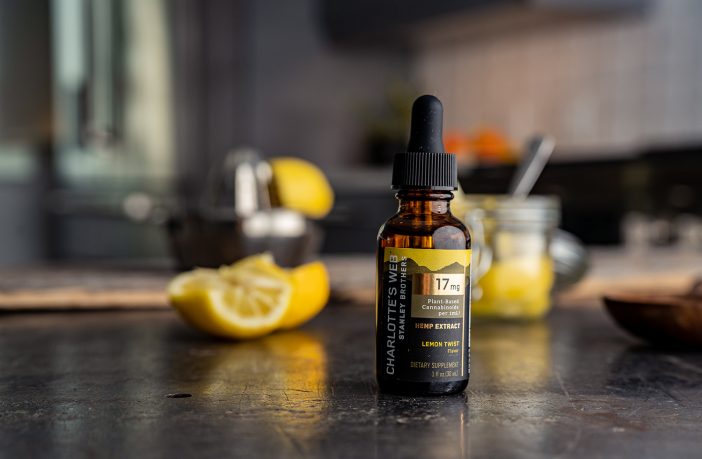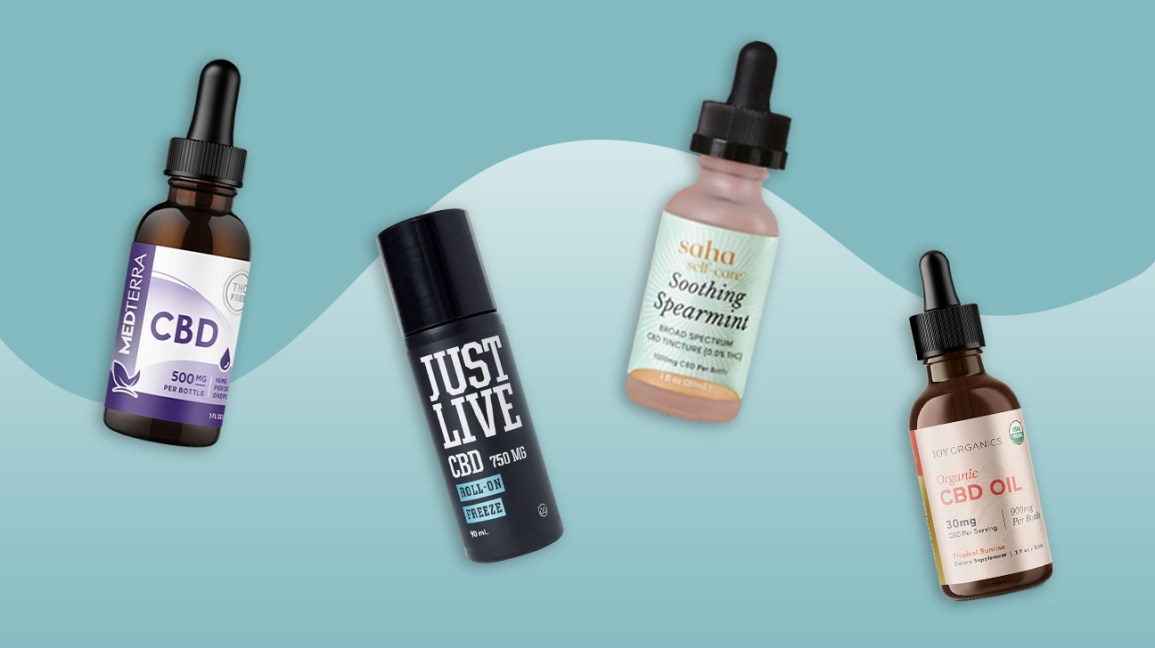
Rick Simpson Oil (RSO), a cannabis oil extract, was invented by Rick Simpson, a medical cannabis activist. He claims that he used it to treat his own skin cancer and that it cured him of the disease.
RSO is a cannabis extract that is produced from Indica strains with high levels of THC. This extract is also known as a full spectrum extract, because it retains all the plant's cannabinoids.
THC and other components of cannabis have been shown in animal and laboratory studies to inhibit or slow down tumor growth. Some researchers are also looking into whether these cannabinoids can help to fight the growth of certain types of cancers in humans.
RSO's effectiveness in treating cancer is yet to be proven, despite these promising results. Until then, patients should speak with their marijuana doctor and medical doctor before experimenting with cannabis for cancer.

Oil for Cancer
Although there is no direct evidence to support the claim that cannabis cures cancer, THC-rich oils are well-known for their ability to alleviate nausea and vomiting, increase appetite, pain relief, and improve sleep. THC-rich oils can increase your risk of developing psychotic disorders and overdose.
RSO can either be taken orally or applied topically to the affected areas. RSO has been shown to reduce the size and appearances of skin cancers in many patients.
When using RSO, it's important to be patient and follow the manufacturer's recommended dosage guidelines. This will ensure that you get the most out of your RSO.
RSO can be applied to your skin by using a circular motion to rub it over the affected area. To make the process easier, you can use a small amount of coconut oil to mix with the RSO and then tap it onto the skin. You should notice the spots start to dry out and crack after a few days.
You can also mix RSO with an emollient, and apply it to the affected area. This method is faster than oral consumption because the oil is absorbed more quickly into the bloodstream.

It is important to locate a medical marijuana dispensary capable of providing you with RSO and other medicinal cannabis products. Most dispensaries will recommend the best RSO strain to meet your needs.
RSO is expensive because of the high amount of cannabinoids in this concentrate. Prices range from $35 - 70 per gram.
Rick Simpson Oil is a potent cannabis extract that has a high amount of THC as well as other cannabinoids. It can be purchased in capsules or as an infused oil.
The oil is a potent combination of cannabinoids terpenes. It is made by distilling the cannabis plants' resin and trichomes, then purifying them. Most RSO is made from Indica strains, as they are known to have powerful sedative effects and can promote much-needed rest. This is especially important for people who have serious medical conditions or are suffering from chronic illness.
FAQ
Can I use CBD during pregnancy?
There hasn't been enough research to determine if CBD can be used during pregnancy.
However, CBD does not appear to be a danger to the baby based upon the limited information.
Pregnant women should not take CBD unless their doctor has recommended it.
The Food and Drug Administration has issued a warning regarding potential risks of CBD use during pregnancy.
FDA stated that there was evidence that marijuana use during pregnancy might increase the risk for miscarriage.
According to the agency, more research is necessary before a firm conclusion can been drawn.
What does the future hold for the CBD Industry?
The future of the CBD industry is bright. It is clear why so many people are getting on board with this industry. This market is expanding exponentially with CBD products being purchased globally at a total of $1 billion.
Statista estimates that worldwide cannabidiol sales will hit $22.4 billion by 2019. That's almost 200% more than in 2018!
The CBD market is also forecast to grow at 22.5% compound annual growth rate, which would result in nearly $6.8B in revenue by 2022.
This is great news for companies looking to enter this space as well as those already operating in the sector. But, it is important to remember that the CBD industry is still in its infancy. There will be many challenges.
Is the CBD industry growing?
The answer is yes The answer is yes! Legalization will continue to spread across North America, and this growth will continue. Canada, which legalized recreational cannabis, has passed several medical marijuana laws.
As more states adopt legislation that allows medicinal marijuana access, this trend is likely to continue at least for the next decade.
It is also economically sensible to legalize marijuana. As well as providing a lucrative alternative market for farmers, there are many other benefits to legalizing pot.
It could, for example, help lower crime rates by decreasing the availability of illegal drug. It could also be a source for tax revenue.
As legal marijuana is more popular, people may be less likely to smoke. This would lead to fewer hangovers as well as lower health care costs.
Patients with chronic pain might find that marijuana actually helps to improve their quality-of-life. Many believe that the active ingredient in marijuana, THC, helps relieve symptoms such as muscle spasms and nausea caused by chemotherapy.
The use of marijuana may be a useful tool in treating mental illness such as anxiety and depression. Some studies show that marijuana can even be used to treat schizophrenia.
The future is bright for CBD, but there are still many challenges ahead.
Are CBD companies worth the investment?
This question will depend on your goals. They are great investments if you are looking to make money. However, if you are just looking to help others, I would say no. There are many other options available without spending $20k.
How can companies successfully market CBD products in a regulation-compliant manner?
The FDA does NOT regulate hemp as an agriculture commodity. However, the agency regulates all other cannabis derivatives (e.g., marijuana) under the Controlled Substances Act. CBD has yet to be subject to specific regulations.
CBD is legal in 29 states. Federal law, however, still considers it illegal. Businesses that want to sell CBD products face uncertainty.
The FDA also maintains strict guidelines on how CBD products may be marketed. The FDA requires that all CBD products clearly disclose their THC content. Companies cannot claim that CBD helps treat certain medical conditions without scientific evidence to support this assertion.
Additionally, the FDA requires manufacturers submit information about manufacturing practices and quality control. To prove safety and effectiveness, they require that companies conduct clinical trials.
When developing their own marketing strategies, companies should take into account these points.
How big is global CBD market size?
Euromonitor International estimates that the global CBD market is worth $US3.5Billion in 2015. This is an increase of more than 10% compared to 2014.
This report predicts that the figure will rise to $US6.4 trillion by 2020, which is an average annual growth rate at 12%.
By 2020, CBD products will account for approximately half of all global hemp-derived products.
This includes both CBD oils and other CBD products such as food, beverages, cosmetics, and pet care items.
Where can I buy CBD products?
You can purchase CBD online or at local retail stores. You will find better deals at online retailers. Many websites will sell CBD products that contain industrial hemp. It contains less than 0.3% of THC.
Look for local businesses that sell CBD products.
Many states now allow CBD products to sold without a prescription. CBD products might be available for purchase at your local pharmacies if you're a resident in one of these states.
CBD products may be delivered right to your doorstep.
Statistics
- The use of these products is likely to become even more widespread if the World Health Organization's recommendation that CBD no longer is scheduled in the international drug control conventions is adopted by the United Nations member states [201]. (ncbi.nlm.nih.gov)
- While the primary injury may not be treatable, interventions that attenuate secondary sequelae are likely to be of benefit [203].Only one study (ncbi.nlm.nih.gov)
- HR −16 mmHg; 95% CI −26, −6; I2 = 92%) (ncbi.nlm.nih.gov)
- As a substance that was federally illegal before the passage of the 2018 Farm Bill, hemp-derived cannabinoids with no more than 0.3% THC still face a regulatory grey area. (forbes.com)
- OralWhere HED is the human equivalent dose, and Km is a correction factor estimated by dividing the average body mass (BM) of the species (60, 0.020, and 0.150 kg for 11 humans, mice, and rats, respectively) and by its surface area (see: Nair et al. (ncbi.nlm.nih.gov)
External Links
How To
What are the major issues facing the CBD industry in general?
The current market for CBD products is growing at an incredible rate. But, businesses who want to enter this market still face numerous challenges. There are many challenges facing businesses looking to enter this space, including low consumer awareness, high costs of entry and limited access to capital.
Many people are not aware of what CBD is, or how it functions. This means they are not able to make informed choices about whether or no to purchase CBD products.
CBD companies are heavily dependent on word-of–mouth marketing. This is expensive because it requires paying for advertising and hiring staff to promote their brand.
Another issue facing new entrants into the CBD industry is the high cost of production. The raw materials needed to create CBD products are quite expensive. CBD oil can only be made if hemp is grown in the right climate and soil conditions.
Grow enough hemp to produce CBD oil requires approximately $1,000 per annum. As a result, many small farmers cannot afford to start.
A lack of capital access is another problem that CBD market newcomers face. Many people who want to start a business are discouraged by banks due to the stigma associated with the industry.
There is also regulatory uncertainty around the sale of CBD products. There are currently not clear guidelines as to how CBD products should marketing.
While some states have passed legislation restricting CBD products' sale, it has not been adopted as a national policy.
So far, only two states - Maine and Nevada - have legalized recreational marijuana.
Massachusetts and Michigan have considered similar measures.
These changes could increase competition among CBD manufacturers.
These factors lead to many entrepreneurs choosing to work from their home instead of starting a physical company.